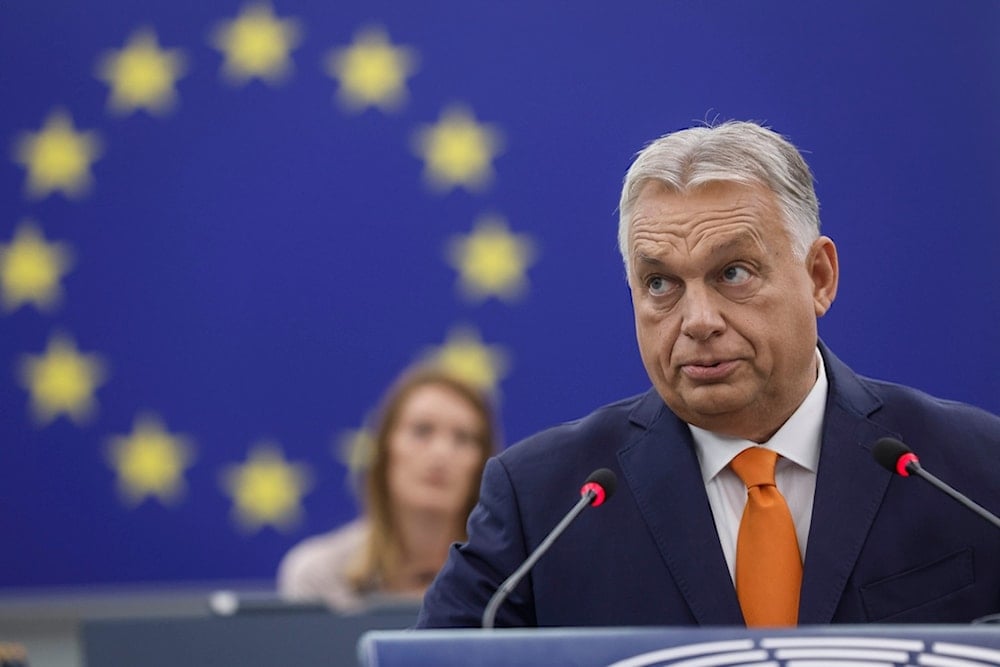Orban accuses EU of conspiracy to overthrow Hungarian government
EU Commission chief Ursula von der Leyen accuses the Hungarian Prime Minister of insufficiently supporting Ukraine and questioned Hungary's commitment to democratic principles, and Orban replies.
-

Hungarian Prime Minister and President of EU Council Viktor Orban delivers his speech in the hemicycle of the European parliament in Strasbourg, France, during a debate on the hungarian programme council presidency, Wednesday Oct. 9, 2024. (AP Photo/Jean-Francois Badias)
Hungarian Prime Minister Viktor Orban on Tuesday said that the European Union is attempting to undermine his government and replace it with a more compliant administration in Budapest.
Posting on X (formerly Twitter) during a visit to Georgia, Orban said that European People's Party leader Manfred Weber and European Commission President Ursula von der Leyen are conspiring to install a "Jawohl [Yes sir] government" in Hungary—akin to what he called a submissive administration in Poland.
"We will not let this happen!" he stated.
There’s an open conspiracy against Hungary led by @ManfredWeber and President @vonderleyen . They admitted that their aim is to replace the Hungarian government with a new “Jawohl government”, just like the current Polish one. We will not let this happen! pic.twitter.com/HWIpYFKaDy
— Orbán Viktor (@PM_ViktorOrban) October 29, 2024
The statement comes in light of growing tensions between Hungary and the EU, particularly following recent confrontations in the European Parliament.
Insufficient support for Ukraine
Orban has openly criticized the EU's substantial financial support for Ukraine, contrasting it with Europe’s internal economic challenges.
In response, von der Leyen accused him of insufficiently supporting Ukraine and questioned Hungary's commitment to democratic principles, accusing Orban of politicizing the European Commission’s "neutrality".
Orban's visit to Georgia added fuel to the controversy, as he praised the Georgian Dream party’s electoral success, a move some EU officials described as premature.
Read more: Georgia to recount votes amid opposition 'fraud' claims
The ruling Georgian Dream party has distanced itself from EU positions, particularly in its refusal to join sanctions against Russia and its implementation of policies that Brussels has criticized as anti-democratic, including a foreign agent law.
EU officials have expressed concern over Orban's actions, viewing them as a challenge to the EU's unified foreign policy stance.

 2 Min Read
2 Min Read








